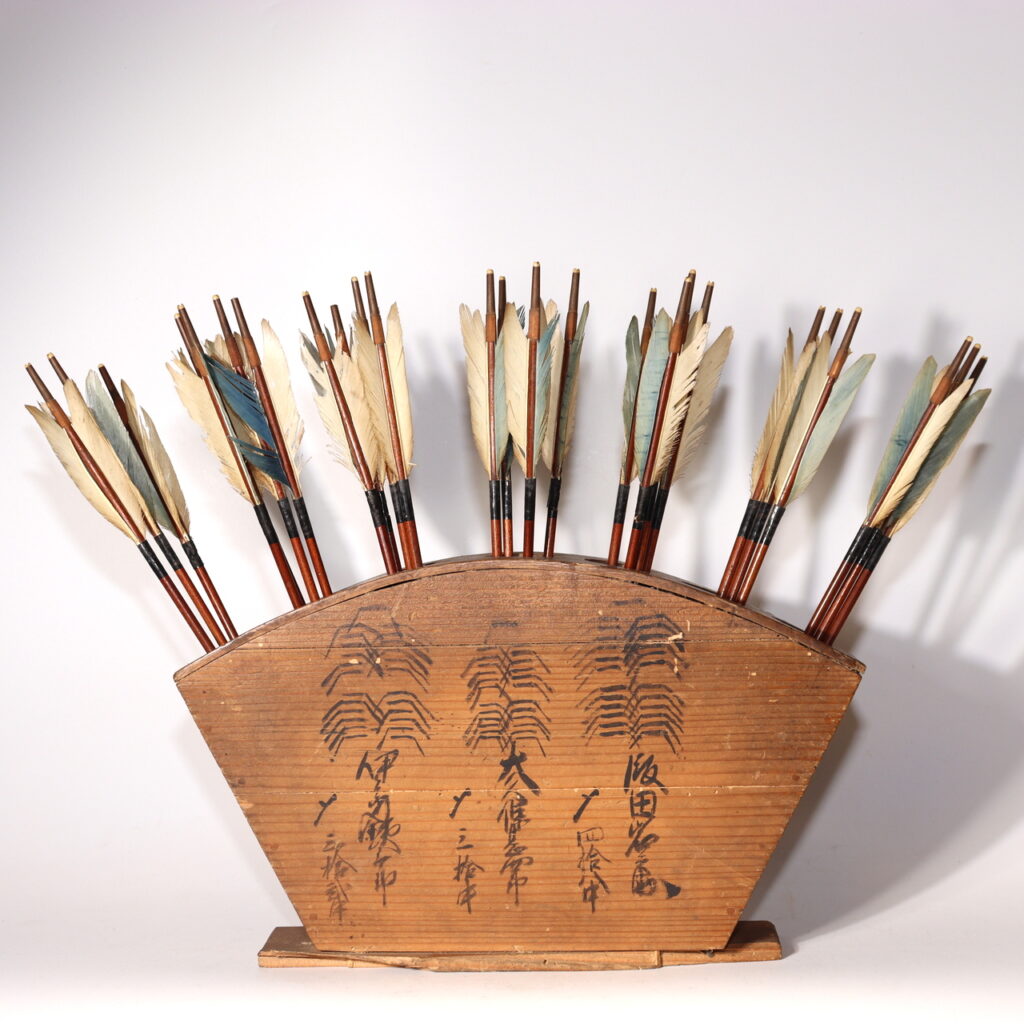
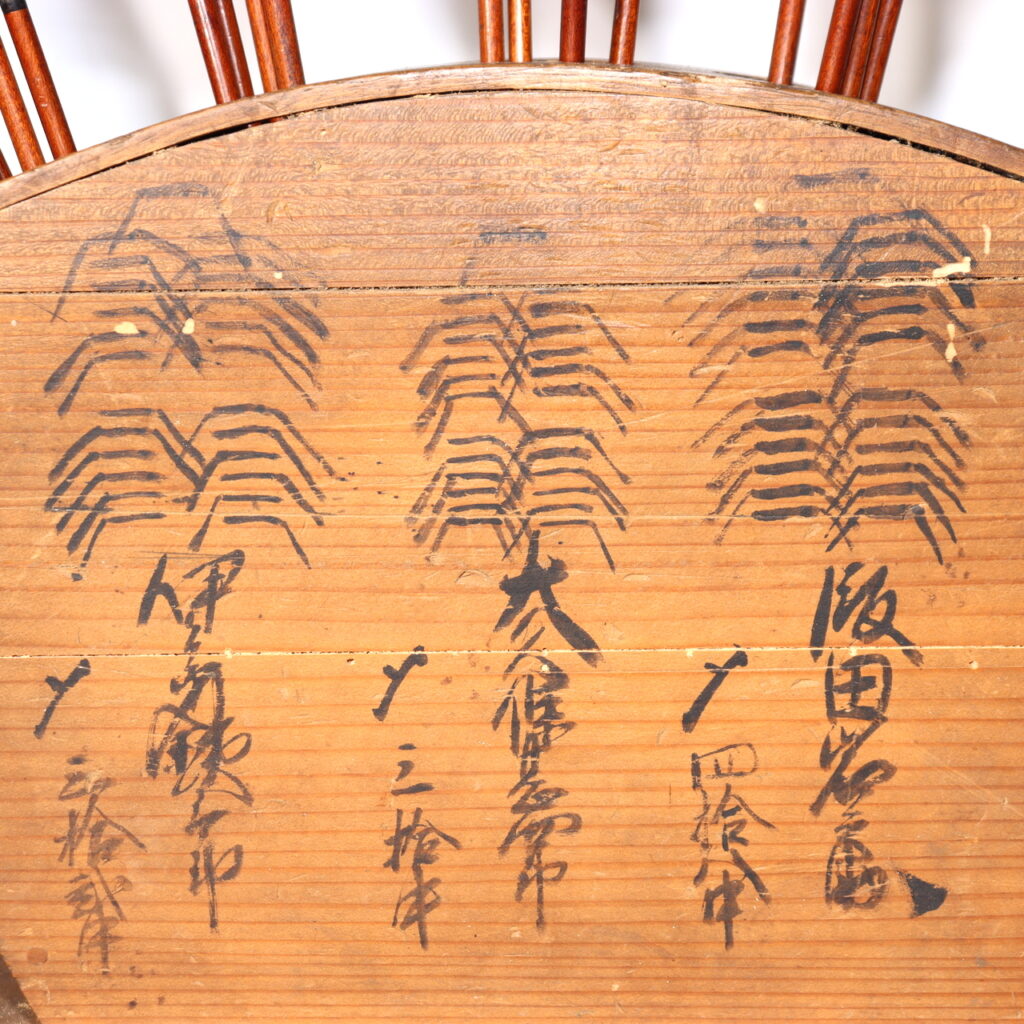
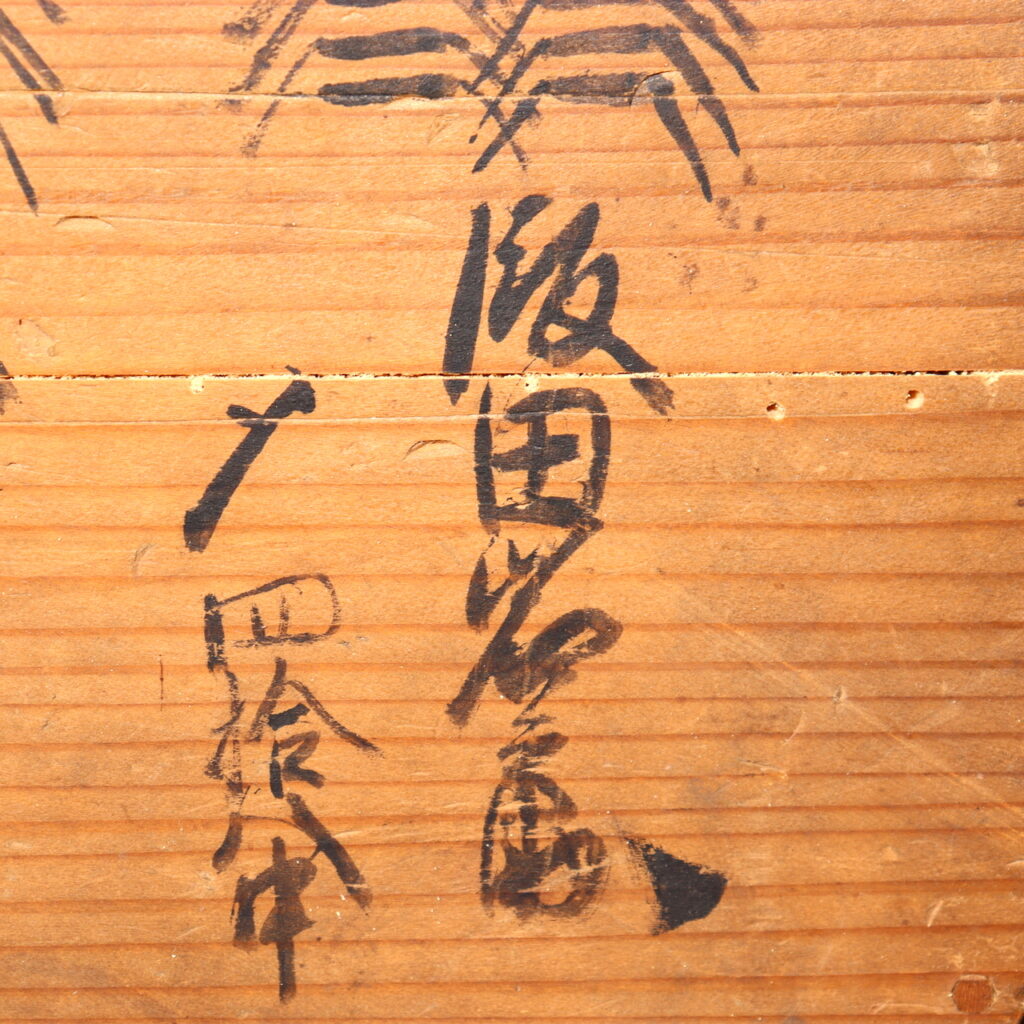
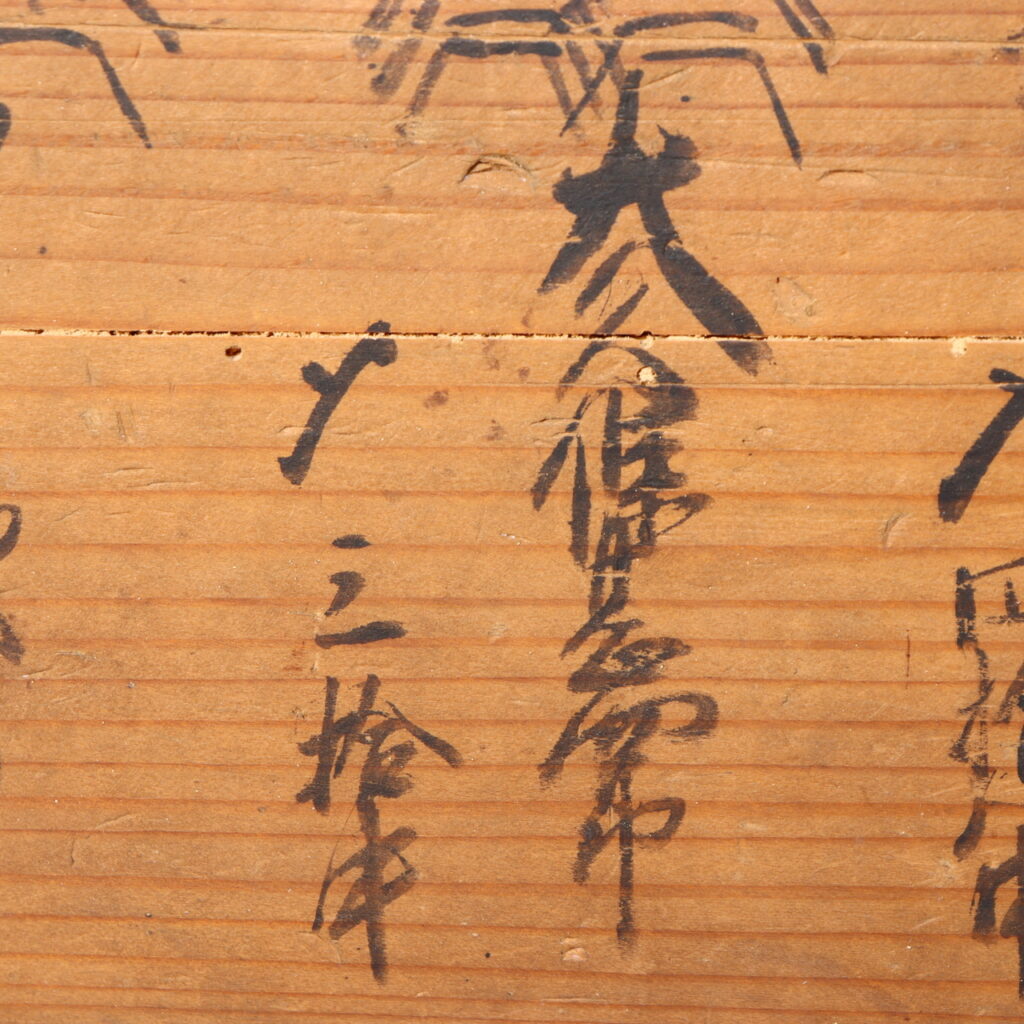
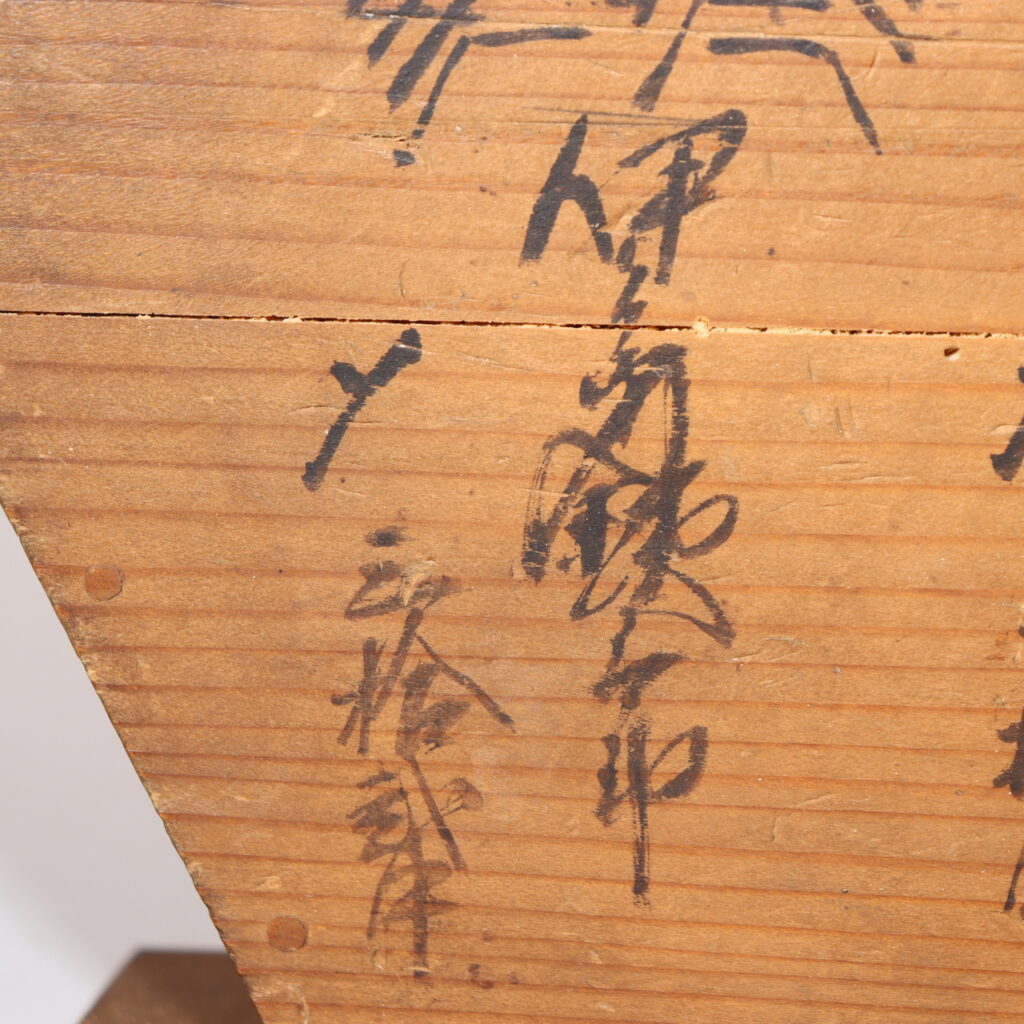
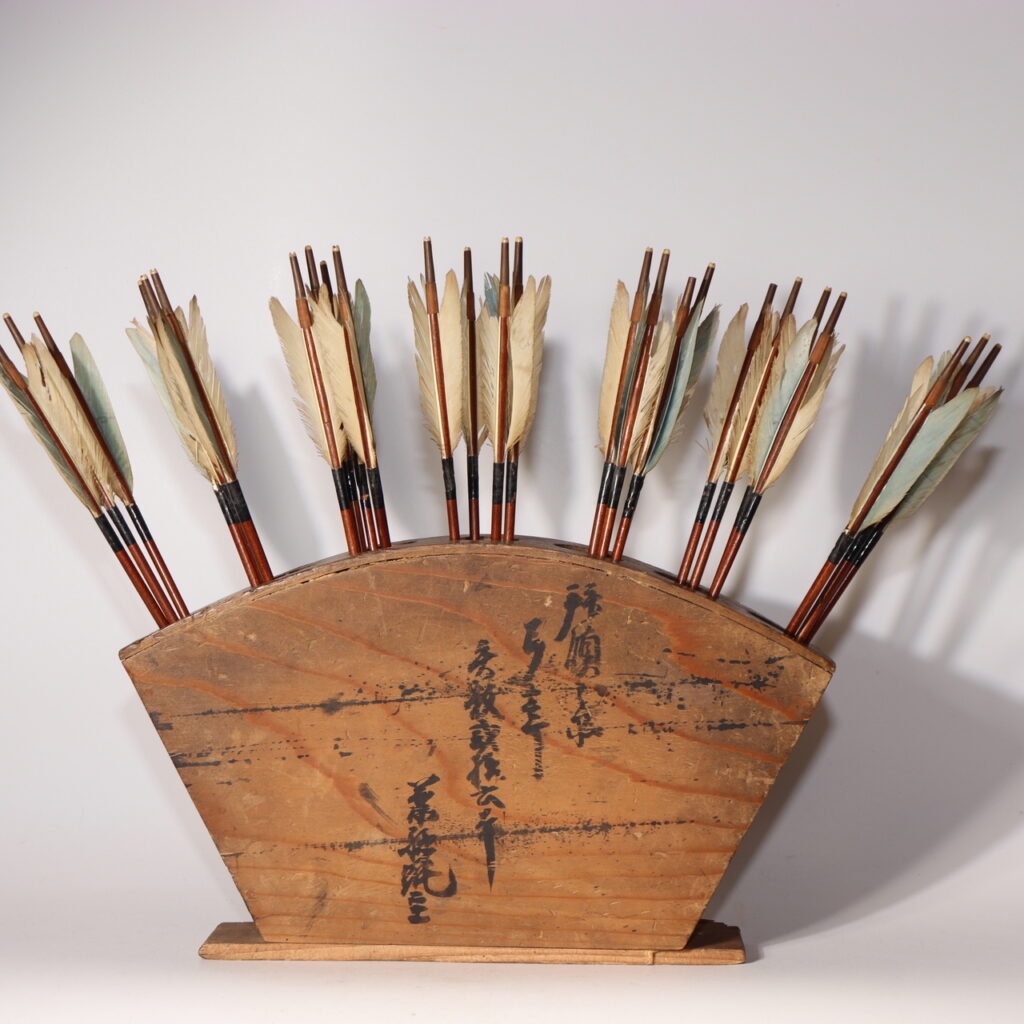
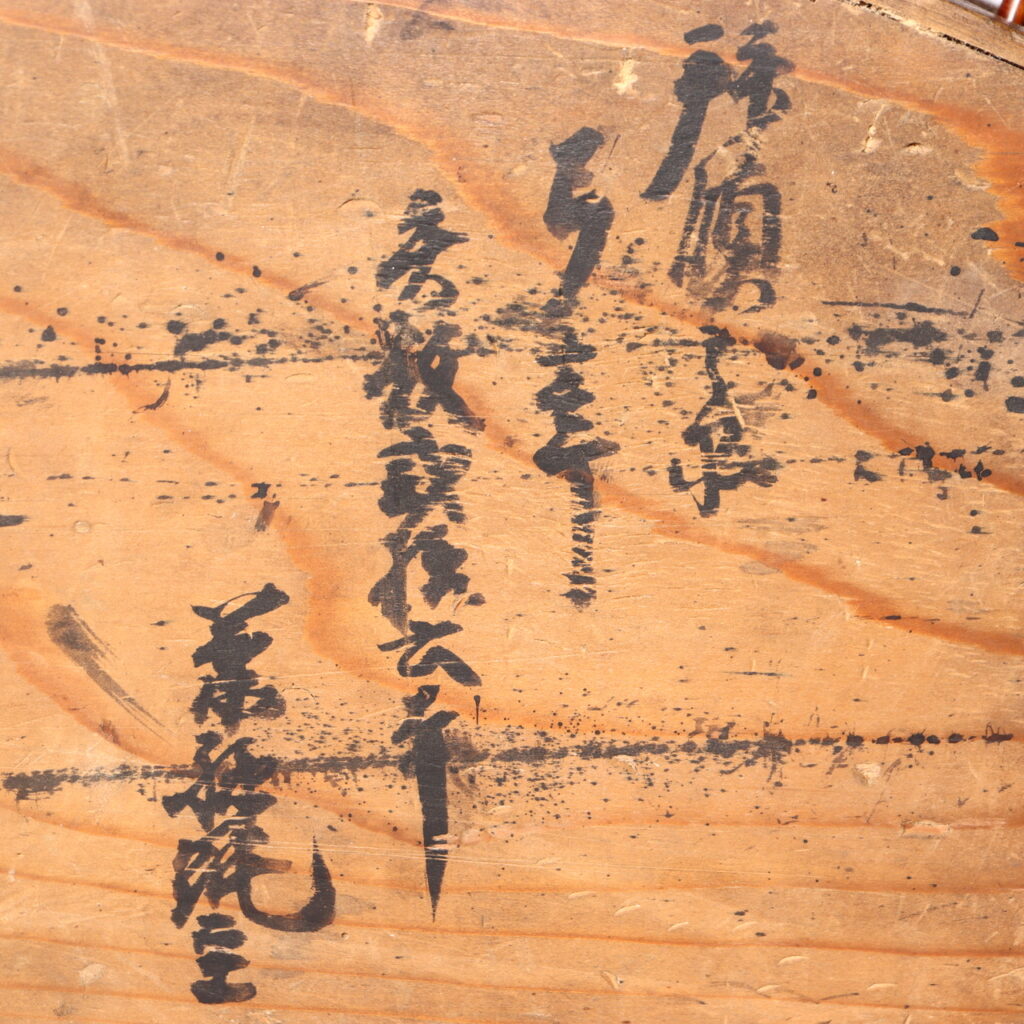
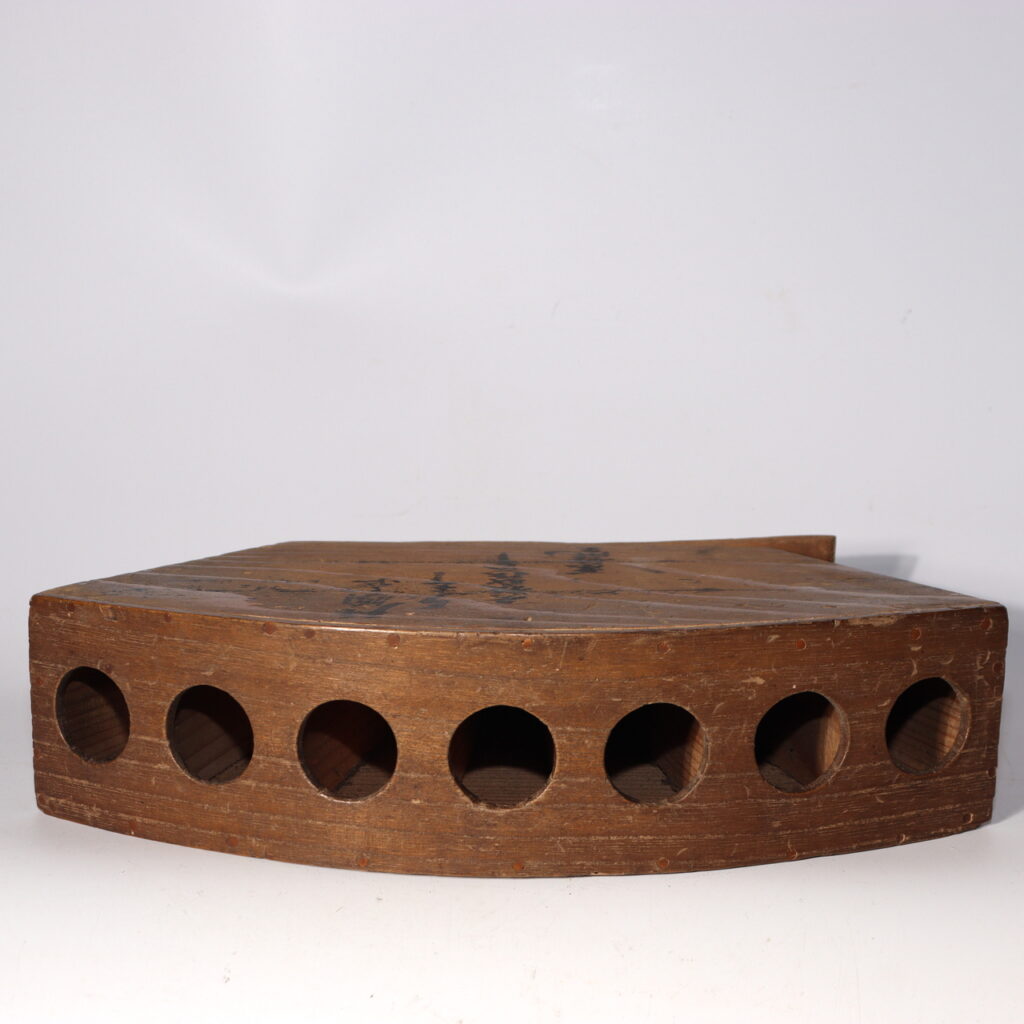
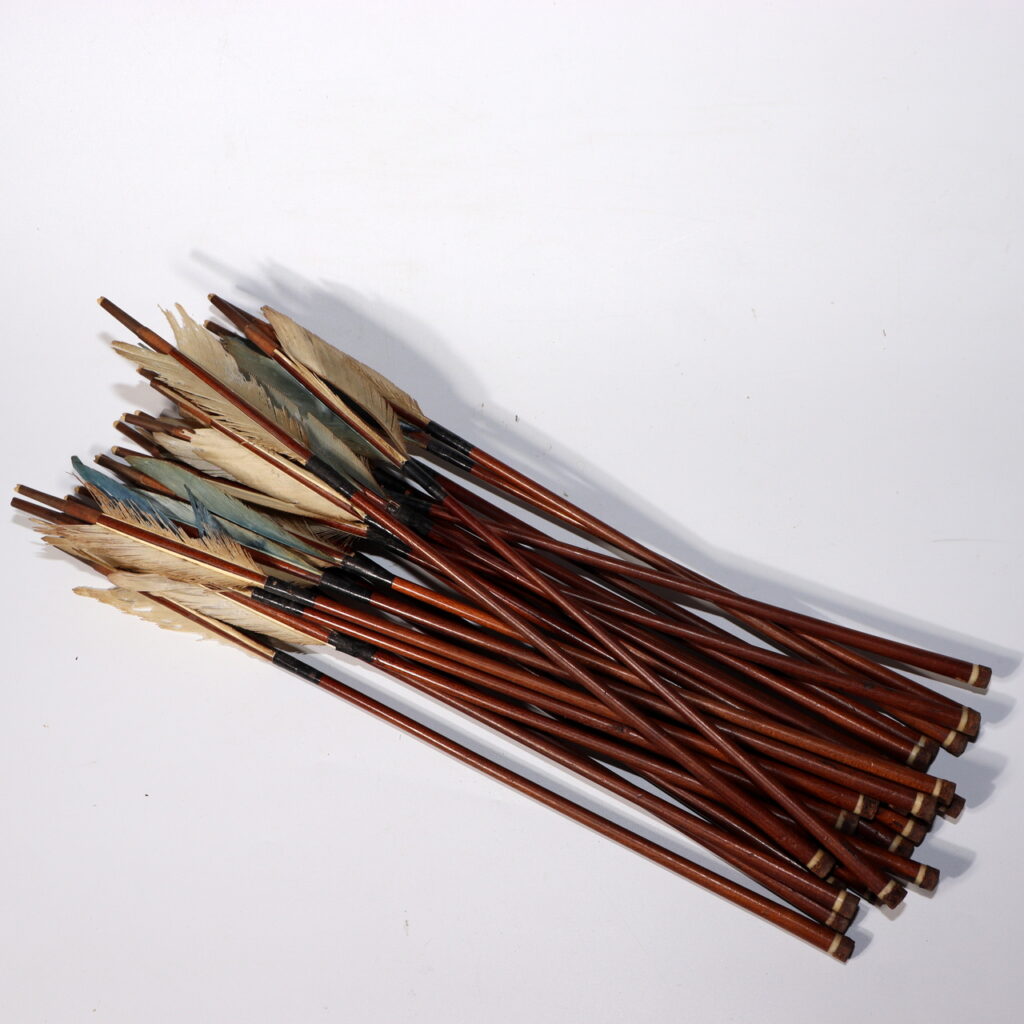
Steeped in the rich martial and aesthetic traditions of feudal Japan, this fan-shaped wooden Ebira (quiver) with 25 miniature arrows offers a glimpse into the symbolic and ceremonial life of the Edo period samurai class. Far from being a battlefield artifact, this set reflects the deeply ingrained rituals and display culture that shaped Japan’s warrior elite.
The Story Behind This Piece
The Ebira, a traditional Japanese quiver, evolved over centuries alongside the rise of the samurai. This particular piece, inscribed with the year Bunka 10 (1813), dates to the late Edo period, a time when the sword had become more symbol than weapon, and ritual, display, and cultural refinement were at the heart of warrior identity.
Unlike full-size functional archery gear, this Ebira houses miniature arrows, each carefully crafted from wood and finished with natural feather fletching. Their size and craftsmanship suggest a use beyond utility—most likely for ceremonial, decorative, or educational purposes. These sets were often displayed in homes of status, Shinto shrines, or samurai households, serving both as symbols of martial virtue and as talismans of protection.
Highlights and Distinctive Features
- Historic Authenticity: The handwritten ink inscription on the back clearly marks Bunka 10 (1813), anchoring the piece in a well-documented era of Japanese history.
- Fan-shaped Quiver: The sensu-style (fan-shaped) form is both elegant and functional, allowing for a radial display of arrows that mimics natural movement and evokes harmony.
- Miniature Arrows: The 25 arrows, each unique, reflect variations in feathering, shaft thickness, and tip finish—each a tiny expression of traditional kyūdō (Japanese archery) principles.
- Ritual and Decorative Role: Their short length and stylized form indicate these were not for combat, but for display in ceremonial contexts or as symbols of martial lineage and discipline.
- Material and Condition: The aged wood bears a beautiful patina, and the calligraphy has softened but remains visible—adding to the charm and credibility of the piece as a Japanese antique.
A Valuable Find for Global Collectors
For collectors of samurai memorabilia, Japanese archery, or Edo period ritual objects, this set is a rare treasure. It speaks not of war, but of heritage, identity, and the quiet pride of a warrior class turned inward during a time of peace.
Its appeal extends to:
- Museum-quality displays of Japanese martial culture
- Interior designers seeking authentic Edo-period accents
- Collectors of ritual weaponry and Japanese antiques
- Historians focused on samurai ceremonial practice
Compact yet impactful, this Ebira makes a dramatic wall piece or cabinet display, evoking the grandeur of a bygone era.
Conclusion: A Symbol of Strength and Serenity
This fan-shaped Ebira, paired with 25 miniature arrows, offers more than historical value—it offers a narrative. One of discipline, of display, of quiet dignity. For those who appreciate the symbolic power of Edo-period art and the enduring legacy of the samurai, this is an irreplaceable gem.
If the item is already sold, we welcome you to explore other rare and meaningful pieces in our collection:
🔗 Browse our full collection of Japanese antiques